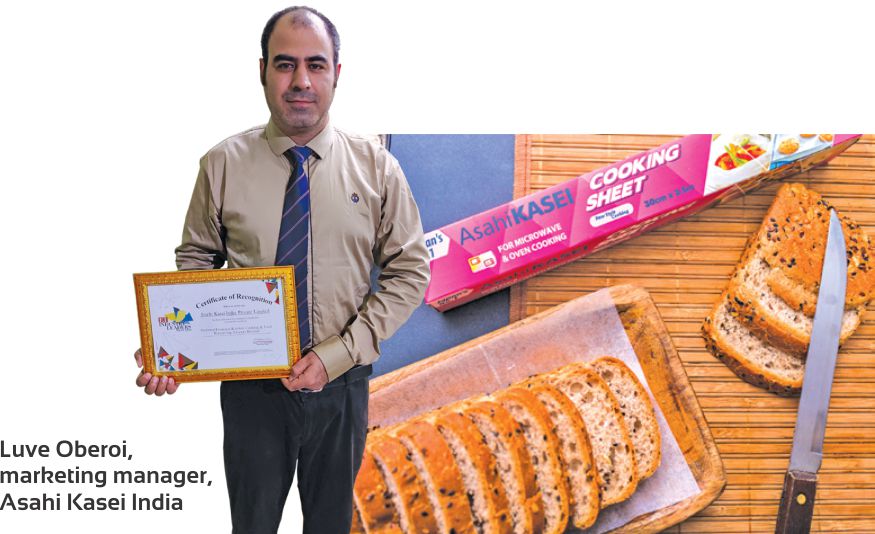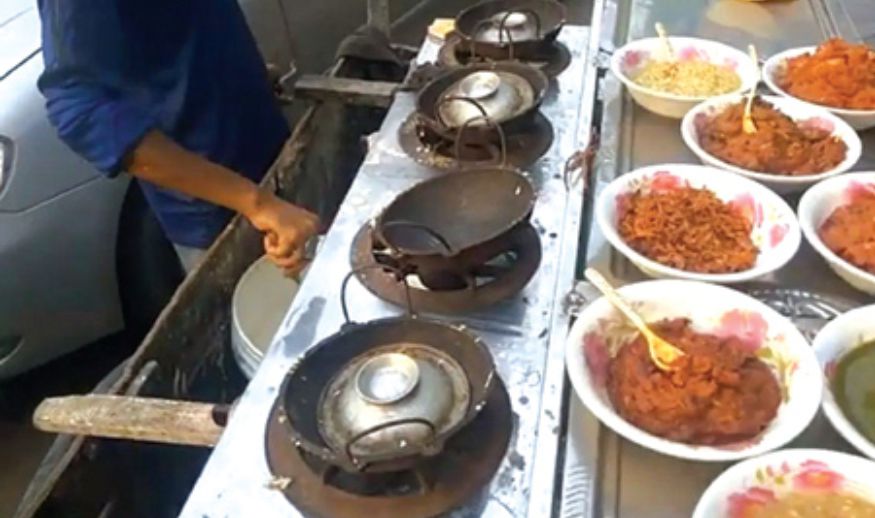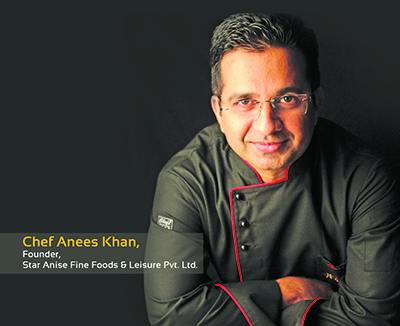H K Batra, Chairman and Managing Director, Perfect Bread Group
BakeryBiz, Nov-Dec, 2020:
H K Batra, Chairman and Managing Director, Perfect Bread Group, started his journey in the bakery segment in 1993 and today has moved on to have multiple manufacturing plants in northern India and a modern retail bakery outlet chain under the Perfect Bake brand. Under his able guidance, the group has grown multi-fold and today caters to seven states of the north region and many institutions like 5-star hotels, hospitals, the prestigious armed forces and Prime Minister’s Office canteen. A recipient of many awards, in his role as the Chairman of All India Bread Manufacturers Association, he has played a pivotal role in guiding and leading the industry initiatives on various platforms. He talks to Bakery Biz about the industry scenario, Covid situation and the way forward.
With the investment of Bimbo into Ready Roti, it was expected that the segment in India will open its doors to various other international players. Almost 4 years down the line, how do you see the markets shaping up?
Be it the 4-year-old Bimbo Mexican tie-up with Harvest Gold, or the investment of Everstone Capital into Modern Foods, things have not changed substantially for the Indian markets. We were all expecting it to be a game changer, but unfortunately, the fact is that we have not seen any dramatic difference in the marketplace. Unlike earlier times, when there was a capping on FDI into the segment, currently 100 per cent FDI is allowed into the food processing sector through the automatic route, still there have not been many international players investing here. While the government’s decision of easing FDI into the segment has been a welcome move, the impact of it is yet to be seen. It was expected that there will be a substantial amount of investment coming in and the current scenario would go through a churning process, no major change in the market dynamics has yet been seen.
Having said that, there has been some interesting development being seen on the domestic front as home grown companies like Amul Dairy and Mother Dairy have entered the fray in the bread category. This is a good sign for the industry. While these are not greenfield projects, they are entering the markets through contract manufacturing, given the large scale capital investments required for setting up their own plants. Amul is likely to launch in Delhi NCR.
Would there be more foreign players investing in Indian brands, or setting up their own facility in India? Are you considering any divestment yourself?
The bread segment, due to its perishable nature and low shelf life, sees most players at the regional levels. Production has been mostly limited to regional levels as expansion costs huge investments. The high cost of setting up cross country production facilities, last mile delivery, logistics, distribution network and various other aspects have deterred manufacturers to go national. Having seen the trend since 2016, when the FDI was opened in the segment and the limited number of transactions that happened, it is hard to say about foreign investment coming into the segment. We believe that in the coming years there will be considerable consolidation seen in the market. We at Perfect Bread are going to be consolidating our existing operations and are not considering divesting any stake.
Tell us about the journey of Perfect Bread Group. What does the future have in store?
The foundation of perfect breads was laid in 1993. From a humble beginning with quality products, Perfect Bread Group has gone onto become a leading name in the bread manufacturing industry because of the group’s relentless pursuit of excellence in all spheres. In 1996, the group launched Perfect Bread and the brand has now become synonymous with unmatched quality.
The year 1997 saw the establishment of L.R. Foods Pvt. Ltd. which later emerged as the flagship company of the group. The new plant enabled enhanced supply in Delhi and other parts in the National Capital Region. In 2000, Harpreet Foods Pvt. Ltd. was set up to introduce a variety of bread and bakery products in the market to satiate increasing demands. In 2006, we set up a modern retail outlet in the heart of Faridabad City to provide customers with the ultimate in exotic bakery products.
Perfect Food Industries was launched at Haridwar in 2008 to expand operations in Uttrakhand and the surrounding uncovered areas and in 2011 Perfect Bread Pvt. Ltd. Was set up in Ambala to supply the market of Punjab and surrounding areas.
From 1993, it has been an eventful journey for Perfect Bread Group; a small business enterprise over the years expanded into a leading group, establishing in the process a strong brand. The current daily production of the group stands at 175,000 loaves and the production capacity has increased to 225,000 loaves per day. The annual turnover of the group has gone up to Rs. 125.5 crore. We currently operate from four locations and have recorded an annual growth of 15 per cent.
Perfect Bread Group of Companies has modern plants with the state-of-the-art facilities; we have also adopted futuristic technologies to increase production and cut costs. To brace for the future, we are introducing new products, expanding existing plants and setting up additional plants. The group will rely on addition of more retail outlets in the National Capital Region, development of novel products, training programmes for employees to enhance their knowledge and skills, product advertising and marketing strategies, increased participations in exhibitions and trade fairs, strategic tie ups, technological collaborations, expansion of manufacturing capacity of the existing units and establishment of new units, and diversification to stay ahead of the competition. By the year 2021 we will be undertaking complete automation for our production facilities. We promise to stand by our commitment to perfection in every area of our business.

This lockdown has seen a surge in the production and supply of bread in the Indian markets. Do you see this as a trend for increase in per capita consumption of bread in the near future?
Generally, over the years, an annual growth of 8 to 10 per cent has been recorded in the production and consumption of bread in India. During the referred period of lockdown, there was an increase, but I am not sure if the growth has been overall. From our perspective, Perfect Breads has seen a 30 per cent growth in production. Having said that, overall the industry sales has been affected significantly due to the closure of Restaurants, Catering institutions, hotels and office canteens. Our growth can be attributed to an increase in the retail market consumption, our focus on quality of products and resultant larger market share.
What precautions and specific steps did you all take during the Lockdown? Any specific learnings for the future which you would like to share with our readers?
As a leading and responsible food producer, we introduced all statutory best practices necessary to build confidence among employees as well as our customers to meet with the ongoing perceived threat during the prevailing Covid Pandemic. We had temperature monitoring, regular sanitation of production facilities, hygiene control, employees wearing gloves, masks, safe distancing, regular sanitation of identified touch points where machineries needed human touch during operations. In the last 9 months, our operations have been run very successfully without a single case of Covid casualty reported on site.
We have learnt and believe that it is important to maintain an inventory for unforeseen situations like the world recently faced. One has to stay focused on hygiene and quality and there is a need to stay updated with the market situation.
How badly were you affected with labour migration during the lockdown. Against this backdrop, do you see a shift to semi or complete automation in the overall industry.
In the initial phase of the lockdown, we did suffer due to the labour migration, with time, we were able to return to normal production capacity without any break down. I will attribute the same to the HR practices we follow and the labour welfare policies we deployed specifically during this period. 1,200 employees – mostly permanent, across our four factories were provided with round the clock health care, meals and facilities to ensure their wellbeing. Yes, there will be a definite and conscious move towards automation for better and consistent production and scalability in the industry. We will be relying on established Indian manufacturers of bakery machinery for automation, foreign technology is very expensive, this also supports Local for Vocal initiative.
How do you see the future of the bakery market in India?
We believe that the future of bakery industry in India is really good. Over the years the market has been growing continuously at a constant pace of 8 to 10 per cent and has the potential to grow exponentially. There is a huge potential for the consumption of bread to take the centre stage in our urban areas. As for the bakery segment, the Indian market still has a lot more to explore and offer to the customers.
As President, All India Bread Manufacturers Association (AI BMA ), what initiatives have been taken during the Covid pandemic at an industry and government level?
As AIBMA, we have played the role of an industry facilitator in conveying to the industry members to strictly follow all statutory practices during the pandemic. We have held various video conferences with our members, for keeping them informed. On the government front, we have refrained from reaching out to the government for support, unlike the Restaurant & Hotel Sector which was affected the most. The bakery industry has done much better than other food sectors.
The government initiative of supporting self-reliance is a positive step for the industry. Even though finer details are yet to be known, the Finance Ministry’s recent announcement of Rs.10,800 crore scheme for the food processing sector is promising for industry growth.













